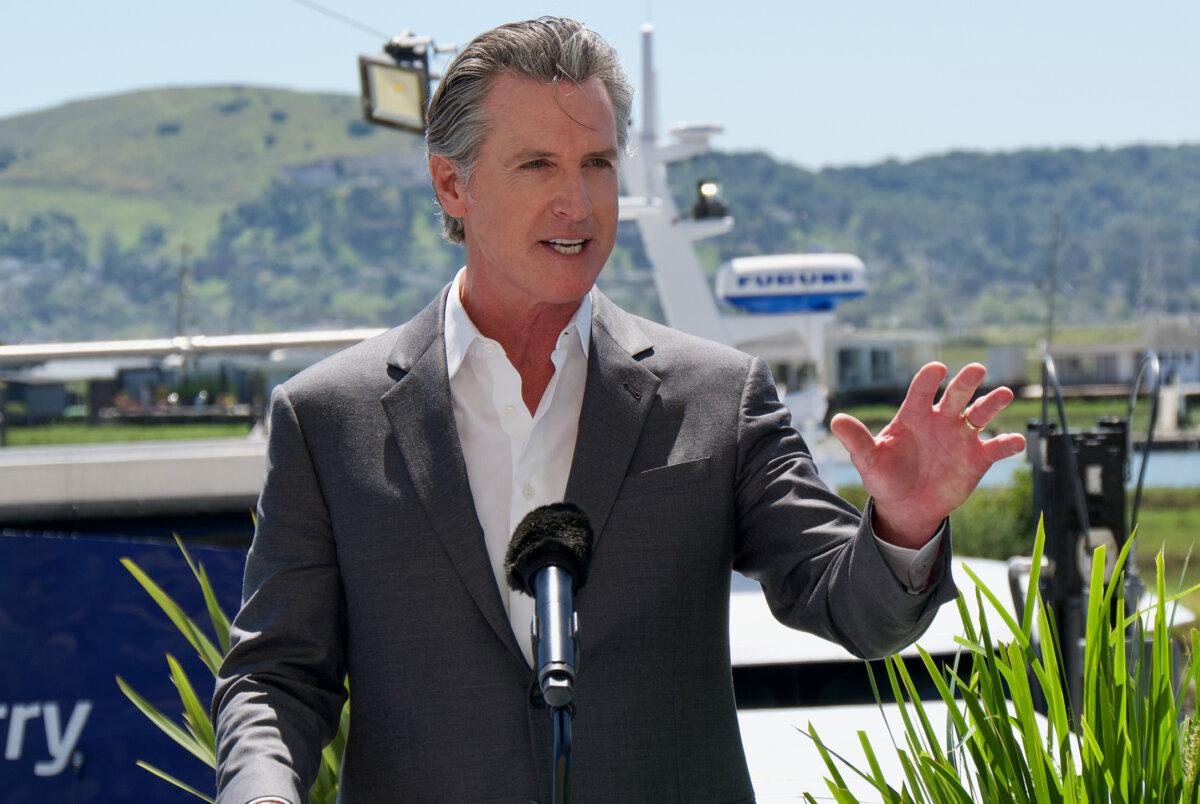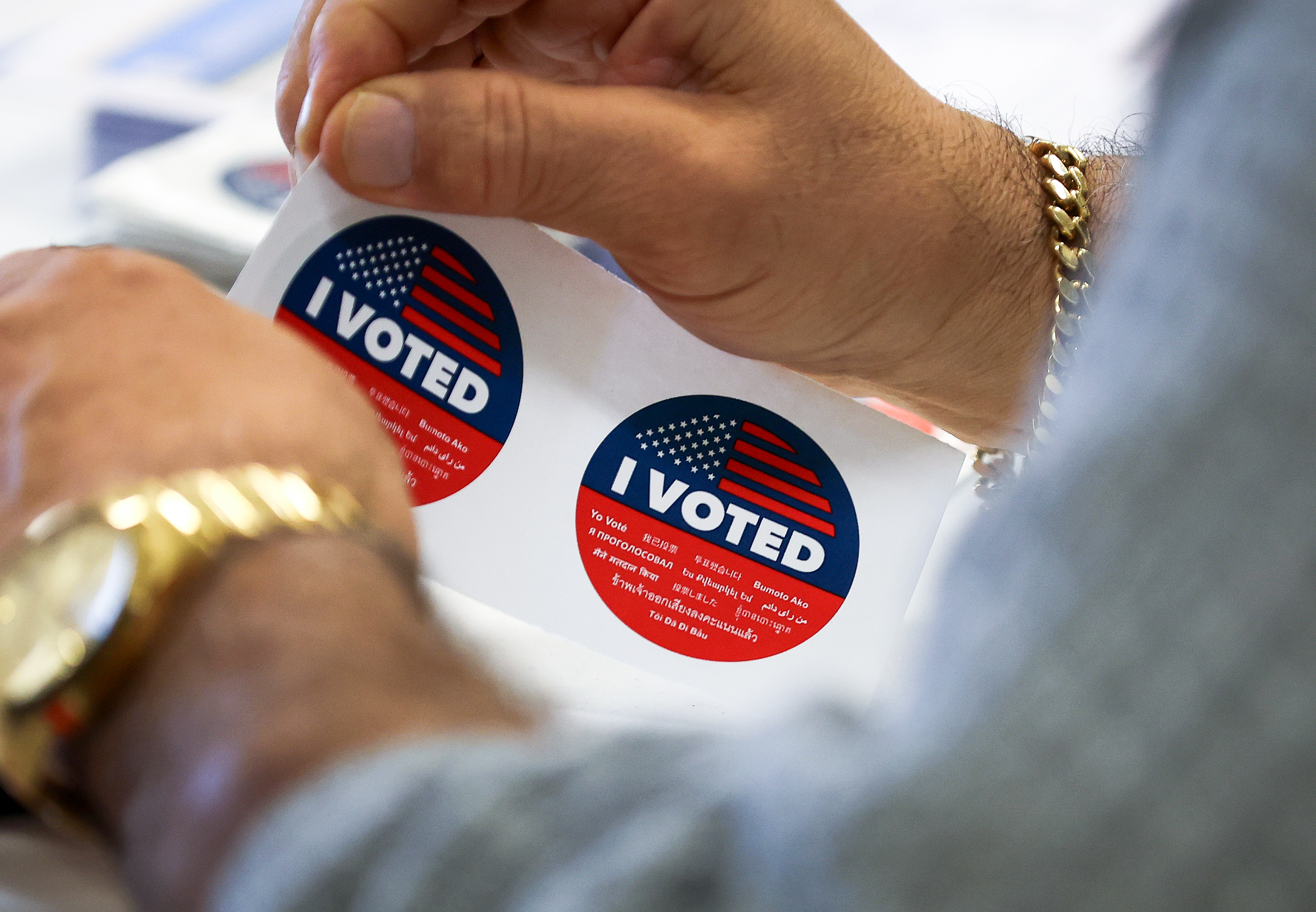The California Supreme Court is considering whether to remove a controversial tax initiative from the November ballot.
During Wednesday’s oral arguments, the justices seemed split over the debate to nix the measure known as the “Taxpayer Protection and Government Accountability Act” off the ballot.
The court listened to arguments for an hour and did not appear too quick to favor either side.
In 2022, the proposition collected 1.4 million signatures to qualify for the ballot, according to Reform California.
The initiative would mandate that voters sign off on all new tax increases, both at the state and local levels. It would also raise the voter-approval requirement to a two-thirds majority for some local taxes instead of the current, simple majority vote. The business-backed initiative would also reclassify many government fees as taxes. If approved, any tax increase since 2022 must follow the new guidelines.
Justice Goodwin Liu pressed Margaret Prinzing, the attorney who argued on behalf of the state, on the issue of voting power.
“What is the significance of the Legislature having this power as opposed to sharing this power with the electorate?” she asked.
The attorney said the state legislature has always had the supreme power of taxation and that the initiative would revoke that precedence.
Democrats, along with labor unions and several local big city governments, want the measure removed from the November ballot. In a legal challenge filed last fall, California Gov. Gavin Newsom and legislative leaders requested that the state Supreme Court remove it from the ballot. Opponents further argued that the measure is too broad and considered a constitutional revision rather than an amendment.

California Governor Gavin Newsom meets with delegates from Norway on April 17, 2024. (Travis Gillmore/The Epoch Times)
The measure, if approved, would “eliminate much of the executive branch’s administrative and regulatory power and would repeal taxing authority that the Legislature has held throughout California’s history,” according to the court filing.
Cal Cities filed an amicus brief in support of the Democrats’ legal challenge.
“The fact the Supreme Court granted full briefing and argument of the writ petition is very unusual — plainly the Court views this as an unusually important case,” according to a statement by Michael Colantuono, co-author of the local government association amicus brief.
Opponents of the measure also believe that such provisions could affect the government’s ability to raise taxes to provide essential government services in cases such as natural disasters, pandemics, or certain economic conditions. For example, the state temporarily raised taxes after the 2008 recession to protect funding for education and social services from being further cut.
Furthermore, roughly $2 billion in municipal revenue could be lost through the provision if funds are not re-approved by voters, according to an estimate by the League of California Cities.
But taxpayer advocates and business groups support the initiative and want it to remain on the ballot. They argue that government spending should be limited. Supporters also say that California residents already pay some of the highest taxes in the nation and continue to struggle with the high cost of living.
Assembly Republican Leader James Gallagher (R-Yuba City) filed an amicus brief with the California Supreme Court, opposing Democrats’ efforts to remove the measure from the ballot.
“For someone who loves to talk about democracy, Gavin sure is trying hard to disenfranchise millions of Californians. Let the people vote!” he wrote in a February statement.
He also called the unprecedented action of using courts to stop Californians from deciding a ballot measure “a stunning attempt” to undermine voters.
Former Democratic legislators Don Perata and Joe Coto, along with the California Farm Bureau Federation, also joined the amicus brief in support of his position.
According to Rob Lapsley, president of the California Business Roundtable, if the court sides with Mr. Newsom, then it would violate “decades of precedence” by removing an initiative before voters could decide its fate.
The Secretary of State must certify the general election ballot by June 27. The California Supreme Court could decide to dismiss the case or issue a ruling closer to that deadline.
From NTD News














